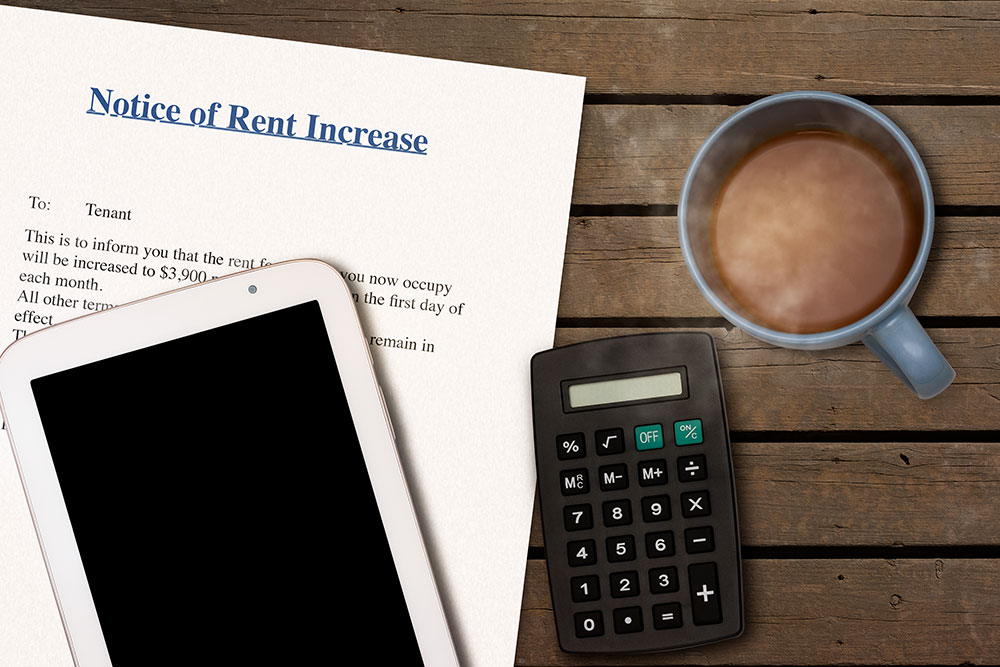
Written Notices From Your Landlord
3, 30, 60 and 90-day notices are given if you are behind on rent or the landlord wants you to move. They are also used to raise your rent.
Written Notices from Your Landlord
Notices from landlords deserve your attention, especially those with time limits. A landlord can require you to:
- Pay past-due rent within three days,
- Stop violating your rental agreement within three days,
- Move out of the rental unit in 30, 60 or 90 days, or
- Pay increased rent in 30 or 90 days
3-DAY NOTICES
A landlord can give you a 3-day notice for the following reasons:
- You have not paid your rent; or
- You do not follow the terms of your rental agreement.
- You destroy the property, or in case of illegal activity.
Paying rent on time
If you get a 3-day notice because you haven’t paid your rent, you have only three days to either pay the rent due or move out. If you pay within the 3-day period, the landlord has to accept your rent, and cannot try to evict you.
If you don’t pay your rent or move out within three days, the landlord can go to court to have you evicted. If that happens, someone will serve you with a court notice called an Unlawful Detainer. The Unlawful Detainer is a lawsuit to have you evicted.
If you move out within three days, the landlord can still try to get you to pay any unpaid rent.
Keeping terms of your agreement
Your landlord may also give you a 3-day notice if you don’t follow the terms of your rental agreement. For example, if you have a pet, but your rental agreement forbids pets, the landlord may give you a 3-day notice to remove the pet or move out.
If you do not remove the pet within 3 days or move out, the landlord may serve you with an Unlawful Detainer asking the court to evict you.
Calculating notice periods
In calculating a 3, 30, 60 or 90-day notice period, do not count the day you receive the notice. For example, if you receive the notice on a Monday, day one is on Tuesday. Also, if the last day falls on a Saturday, Sunday, or holiday, you have until the next business day to take care of the problem or move out.
30-DAY, 60-DAY AND 90-DAY NOTICES TO MOVE
If you are not behind in your rent but the landlord wants you to move out, they must give you a written notice.
Only a 30-day notice is required if all tenants have lived there less than a year.
A 60-day notice is required if all tenants have lived there a year or longer.
There is an exception to this rule. Only a 30-day notice is required if all of the following apply:
- You live in a house, townhouse or condo.
- The landlord is selling it.
- The landlord has opened escrow with a licensed agent.
- It has not been 120 days since the landlord opened escrow
- The landlord has not previously given you a 30- or 60-day notice.
- The purchaser in good faith intends to reside in the property for at least one full year after the termination of the tenancy.
The law does not require landlords to give you a reason why they want you to move out, unless you live in a city with rent stabilization. Not all cities are under rent stabilization. If you live in a city or unincorporated area with rent stabilization, you can call the rent stabilization board at the following numbers:
- For unincorporated Los Angeles County, call (833) 223-7368.
- For the city of Los Angeles, including the San Fernando Valley,
call toll free (866) 557-7368. - For Santa Monica, call (310) 458-8751.
- For West Hollywood, call (323) 848-6450.
- For Beverly Hills, call (310) 285-1031.
- For Inglewood, call (310) 412-5301.
Raise the rent notices
If the landlord wants to raise your rent by 10% or less within a 12-month period, only a 30-day written notice is required. If the rent increase is more than 10%, you must be given a 90-day written notice. If you live in a city with rent stabilization, the amount your rent can be raised is limited.
I receive Section 8. Do I have special protections?
Yes. In addition to all the protections and responsibilities that apply to other tenants, Section 8 tenants get at least a 90-day notice, instead of the typical 30- or 60-day notices, to end the tenancy for no reason. The landlord can still give you a 3-day notice if you violate the rental agreement. Examples of this include: not paying rent on time, damaging the property, or moving in unauthorized tenants. Also, if the rental unit is under rent stabilization, the landlord must follow the rent stabilization rules, which require a valid reason to evict you.
My landlord is in foreclosure. What are my rights?
As a tenant, you are entitled to written notice if the property is sold. Once the property is sold, you must be given at least 90 days written notice to move.
Your rights as a renter
All notices from your landlord must be in writing. If you have a lease and you follow the terms, your landlord may not end the lease until it expires.
You have the right to complain to a government agency about your landlord. You also have the right to organize and participate in a tenants organization. If you file a complaint with an enforcement agency, such as the health department or building and safety, the landlord cannot legally retaliate against you. Retaliation may include raising your rent, decreasing your services or taking steps to evict you. This protection is good for 180 days from the date you filed your complaint as long as you continue to pay rent and follow the terms of your rental agreement.
Civil Code 1946.1
County of Los Angeles Department of Consumer and Business Affairs. Last change: Nov. 6, 2019

